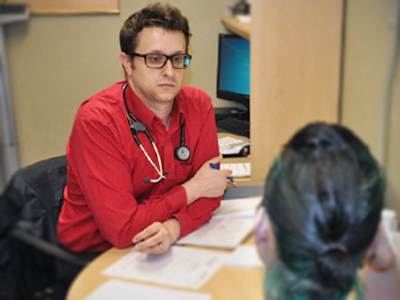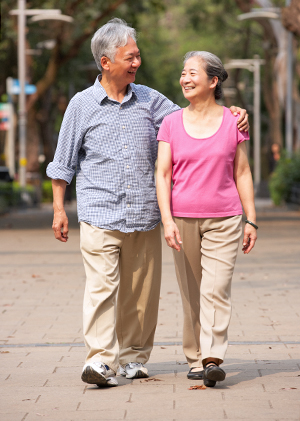
Study’s Chinese food cooking class intervention aims to help Chinese-Canadian diabetes patients better manage the condition.
Staff at Richmond Hospital’s Diabetes Education Centre realized they needed to rethink the healthy eating and nutrition program offered through the centre when they kept getting the same feedback from their diabetes patients: “I don’t eat half of the foods you just talked about.” Their patients’ honest response makes sense – most of them are of Chinese ethnicity, which reflects Richmond’s predominantly Chinese population. In Canada, people of Asian, Aboriginal, South Asian, Hispanic, and African descent are at greater risk of developing type 2 diabetes1.
Sparked by this feedback, Vancouver Coastal Health Research Institute clinician and clinical director of the Diabetes Education Centre Dr. David Harris, along with the centre’s registered dietitian Natalie Choy and diabetes registered nurse Yvonne Kwong, have developed a clinical study to test the efficacy and feasibility of offering Chinese – Canadian patients cooking classes in their own language, tailored to include foods commonly used in their culture.

Choy adds that while she and Kwong educate patients about how to better manage their diabetes, it’s difficult to know what they do with that knowledge once they get home.
“It’s one thing to know that eating and cooking healthier is better for you, but it’s another thing to be able to actually do it,” she says.
“If we show our Chinese-Canadian patients how to live a healthier lifestyle, even if only through the short time that we have them in the cooking classes, at least they can get a feel for it. And hopefully they realize it’s not that difficult to cook a meal that helps manage their diabetes or to go for a short walk after eating.”

Small study has research team cooking, eating, sharing, and walking with participants
The pilot study seeks to enrol approximately 100 Chinese patients with diabetes in Richmond. All participants attend two four-hour education classes focused on the background of diabetes, medications for the disease, and dietary and lifestyle recommendations for diabetes patients. Approximately half of the participants will then take part in a series of four four-hour cooking classes delivered over the course of four consecutive weeks. Chef Mickey Tse, the executive chef and manager of food service at S.U.C.C.E.S.S. Multi-Level Care Society, leads the classes along with Choy and Kwong and highlights healthy Chinese foods and styles of cooking using selected recipes from Diabetes Eating Wisdom: Chinese Recipes and Health Tips, a cookbook published by the Diabetes Education Network of East Ontario. During the four hours, study participants will learn how to prepare their meals and will also learn more about diabetes self-management, such as food choices, meal planning and preparation, portion control, self-monitoring of blood glucose levels, and physical activity.
“Participants learned how to make their meal with tips from Chef Tse and then worked well together cooking in small groups,” shares Choy about the first cooking class earlier this month.
“Then we shared the meal and talked about what they liked or didn’t like about it and the other recipes, and we cleaned up and went for a walk afterwards. And after that we talked about diabetes management,” she says. “Before eating the meal and two hours after eating, participants checked their blood sugar levels so they could actually see how the foods they ate impacted them and how the exercise affected them as well.”
Dr. Harris explains that the research team will complete the cooking class intervention and then evaluate the patients’ glycemic control, blood work, self-care questionnaires and other simple parameters of diabetes care, two-to-three months after completing the cooking classes and compare them to those participants who only received the education classes.
“At the end of the day, diabetes patients of different ethnic backgrounds want more education about some of the things they already eat with their families on a day-to-day basis and how healthy (or unhealthy) those foods are,” Dr. Harris adds.
“Ours is a small study but we hope to show that tailoring an intervention such as this is a worthwhile effort – it hopefully gets people with diabetes to live healthier and it may also improve the health of our community.”


